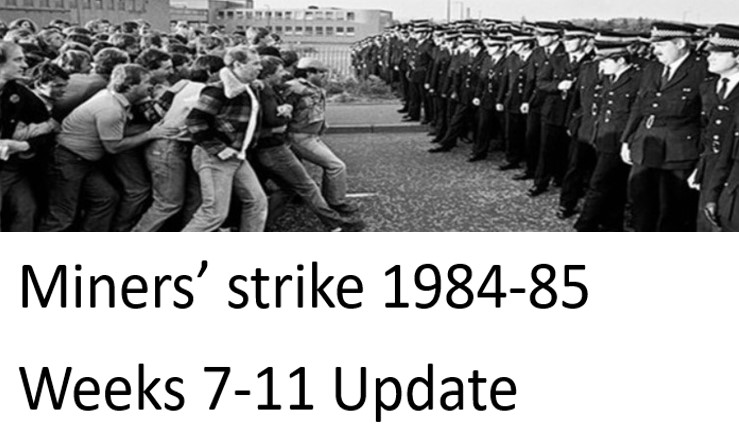A whole world is out there, like another planet, far removed from the daily lives of 99 per cent of the population. It is a world where money is used to make more money. All you need, you see, is a Special Purpose Acquisition Company, a SPAC.
The whole point of a SPAC, also called a “blank-cheque company”, is to make money for people who are already wealthy. It is for people who have so much money that they cannot spend it all, and it has no other purpose. Its principal aim is to seek other companies to take over.
The effects on the lives and livelihoods of people who happen to work in the companies taken over by a SPAC are of no relevance whatsoever. The aim is to get as much out of a takeover as possibly. Whatever it takes – selling it on, selling off bits, selling assets like land and buildings, or just saddling a company with big debts while pocketing massive dividends. It doesn’t matter, so long as the SPAC shareholders make lots of money.
Give it a catchy name
A recent and amusing blog by Matt Levine of Bloomberg Opinion, looked at different features of SPACs and comparing them to hedge-funds. For instance, there’s the naming of them. “If you are starting a new investment vehicle”, he suggests, more than a little tongue in cheek, “you want to give it a name that is unique and memorable and that conveys something about your aspirations.
“For instance if you’re starting a hedge fund you will probably name it after some figure of classical mythology (to convey “I have read books”) or Elvish mythology (to convey “specifically, I have read the appendices to ‘The Lord of the Rings’”), or after a posh town or neighborhood (to convey “I am posh”), or after a generic geographical feature (to convey “I am posh but discreet”), or after a nautical term (to convey “I would like to buy a yacht”).”
Give it a celebrity
Another recent feature in the New York Times shown how the fashion for SPACs – “Anyone who is anyone has a SPAC right now” – is gripping the small but immensely rich world of celebrities. “…there’s a new way for the rich and recognized to flex their status and wealth: through a SPAC…Jay-Z is involved with one. Shaquille O’Neal has one. Ciara Wilson sits on the board of one, as does Serena Williams.

“Sports figures seem especially enthusiastic about them: Alex Rodriguez, Steph Curry and the activist and former NFL quarterback Colin Kaepernick — or should we say, “SPAC-ERNICK” — all have one. So does Billy Beane, the former Oakland A’s general manager and subject of the book and film “Moneyball.”
The kinds of money raised are considerable. According to Bloomberg, six SPACs raised a total of $4.34 billion. It is easier to raise money, Matt Levine argues, “if it has a celebrity attached to it”, not that there aren’t boatloads of cash out there waiting for some ‘opportunity’ to come along. As Levine says, “If you can snap your fingers and raise hundreds of millions of dollars for Any Old Acquisition Corp., and then take 20% of that money for yourself, that gives you a lot of money to spend on marketing. Why not spend 2% of investors’ money slapping a celebrity on your SPAC, raise more money, and keep 18% for yourself?”
Give it your spare billions
While many working people have suffered during the pandemic and are still suffering from unemployment and financial difficulties, SPACs have taken off during the Covid era. While the world shivers in an economic chill, the rich just go on getting richer. According to the Financial Times, SPACs are on record to surpass the fundraising of 2020 -itself a record year, $79bn compared to $19bn the previous year – by a considerable amount. In the first six weeks of this year alone, $42.7bn has been raised.
According to the same Financial Times article, “Hedge funds have embraced SPACs because they see the investments as having limited risk — and huge potential upside. Early backers can park cash in the vehicles for up to two years, accumulating interest, while receiving warrants that can be converted into relatively low-priced shares once a blank-cheque company merges with another business.”
As a professor who has studied SPACs at Stanford Law School, called them, they are “an enormous gold mine” for hedge funds. “It offers an investment with no downside whatsoever and a free warrant in a company to be designated later.” Even if the SPACs fail to acquire a company in their two-year time limit, they have gained interest on government stock held in the interim. It is win-win for those with money.
In the real world, ninety-nine percent of the population wrestle with the task of making daily life as secure and as sustainable as possible. Science struggles to find answers to pressing global problems like viral pandemics and climate changes. Meanwhile, the only concern of the one per cent of the global population with more money that they know what to do with is to find new mechanisms and engineering new financial structures to make their money grow. It is all part of a system that is rotten to core and deserves to be in the dustbin of history.



